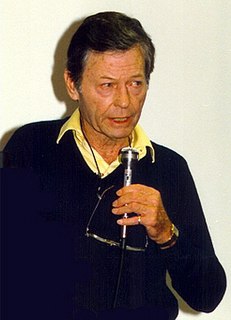A Quote by Frederick Lenz
In the second stage we stop thought for limited periods of time.
Related Quotes
If you can stop using substance or stop your addictive behavior for extended periods of time without craving, you are not dependent. You are dependent only if you can't stop without physical or psychological distress (you have unpleasant physical and/or psychological withdrawal symptoms) or if you stop and then relapse.
I don't come on to seduce the audience. I don't care if everyone laughs. I can't think about that anymore. If there's anything that a lot of experience on stage and a lot of stage time gives you is the confidence to know that it's ok if they're not laughing every second you're up there. Although that's what drives me and I still go too fast a lot of the time.
Classical is a more refined and structured dance form. Folk is made for celebration. That's not a very competitive dance form. Though you can bring classical on stage, folk becomes limited. Like you would love to do bhangra and garba at parties, but when you see it on stage, it is very limited in terms of movements.































